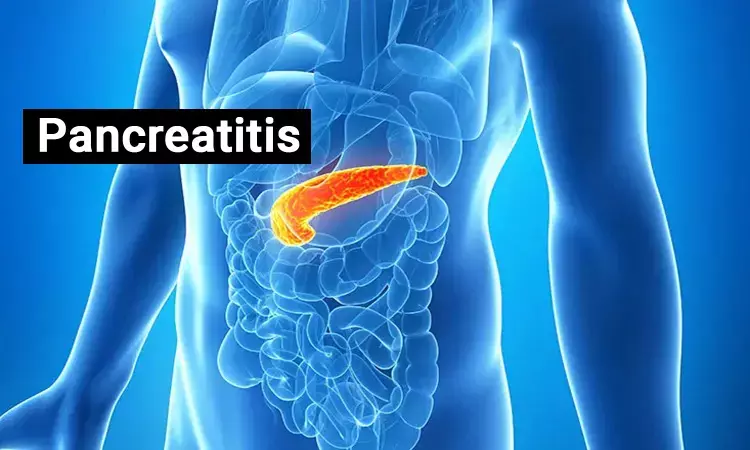- Home
- Medical news & Guidelines
- Anesthesiology
- Cardiology and CTVS
- Critical Care
- Dentistry
- Dermatology
- Diabetes and Endocrinology
- ENT
- Gastroenterology
- Medicine
- Nephrology
- Neurology
- Obstretics-Gynaecology
- Oncology
- Ophthalmology
- Orthopaedics
- Pediatrics-Neonatology
- Psychiatry
- Pulmonology
- Radiology
- Surgery
- Urology
- Laboratory Medicine
- Diet
- Nursing
- Paramedical
- Physiotherapy
- Health news
- Fact Check
- Bone Health Fact Check
- Brain Health Fact Check
- Cancer Related Fact Check
- Child Care Fact Check
- Dental and oral health fact check
- Diabetes and metabolic health fact check
- Diet and Nutrition Fact Check
- Eye and ENT Care Fact Check
- Fitness fact check
- Gut health fact check
- Heart health fact check
- Kidney health fact check
- Medical education fact check
- Men's health fact check
- Respiratory fact check
- Skin and hair care fact check
- Vaccine and Immunization fact check
- Women's health fact check
- AYUSH
- State News
- Andaman and Nicobar Islands
- Andhra Pradesh
- Arunachal Pradesh
- Assam
- Bihar
- Chandigarh
- Chattisgarh
- Dadra and Nagar Haveli
- Daman and Diu
- Delhi
- Goa
- Gujarat
- Haryana
- Himachal Pradesh
- Jammu & Kashmir
- Jharkhand
- Karnataka
- Kerala
- Ladakh
- Lakshadweep
- Madhya Pradesh
- Maharashtra
- Manipur
- Meghalaya
- Mizoram
- Nagaland
- Odisha
- Puducherry
- Punjab
- Rajasthan
- Sikkim
- Tamil Nadu
- Telangana
- Tripura
- Uttar Pradesh
- Uttrakhand
- West Bengal
- Medical Education
- Industry
New guidelines on management of acute pancreatitis released by American College of Gastroenterology

USA: The American College of Gastroenterology has released a new guideline on the management of acute pancreatitis (AP). The guidelines underscored the importance of early management to prevent complications such as organ failure and pancreatic necrosis in patients with acute pancreatitis.
Acute pancreatitis is an acute inflammation of the pancreas. It is one of the most common diseases of the gastrointestinal tract that leads to hospital admission. AP is heterogeneous, progressing differently among patients, and is often unpredictable. Early management is important to identify and treat AP patients to prevent complications.
Biliary pancreatitis patients typically require surgery to prevent recurrent disease and may require early endoscopic retrograde cholangiopancreatography if the disease is complicated by cholangitis. Nutrition plays an important role in AP treatment; the safety of early refeeding and the importance of preventing AP complications are addressed.
The guideline, published in the American Journal of Gastroenterology, provides an evidence-based practical approach to managing patients with AP.
Following are the recommendations for the management of acute pancreatitis
Etiology of acute pancreatitis
- Transabdominal ultrasound is suggested in patients with AP to evaluate for biliary pancreatitis and a repeat US if the initial examination is inconclusive.
- In patients with idiopathic AP (IAP), additional diagnostic evaluation with repeat abdominal ultrasound, MRI, and/or endoscopic ultrasound (EUS) is recommended.
Initial management
- Moderately aggressive fluid resuscitation is suggested for patients with AP. Additional boluses will be needed if there is evidence of hypovolemia.
- Lactated Ringer solution use is suggested over normal saline for intravenous resuscitation in AP.
Endoscopic retrograde cholangiopancreatography (ERCP) in AP
- Medical therapy is suggested over early (within the first 72 hours) ERCP in acute biliary pancreatitis without cholangitis.
Preventing post-ERCP pancreatitis (PEP)
- Rectal indomethacin is recommended to prevent post-ERCP pancreatitis in individuals considered to be at high risk of PEP.
- Placement of a pancreatic duct stent is suggested in patients at high risk for PEP who are receiving rectal indomethacin.
The role of antibiotics in AP
- The researchers suggest against prophylactic antibiotics in patients with severe AP.
- The researchers suggest against fine-needle aspiration (FNA) in patients with suspected infected pancreatic necrosis.
Nutrition in AP
- In patients with mild AP, early oral feeding (within 24–48 hours) is suggested as tolerated by the patient compared with the traditional nothing-by-mouth approach.
- In patients with mild AP, initial oral feeding is suggested with a low-fat solid diet rather than a stepwise liquid-to-solid approach.
"Regardless of the method, it must be remembered that many patients with sterile necrosis, and select patients with infected necrosis, seem to improve and remain asymptomatic, and no intervention may be necessary," Santhi Swaroop Vege, Mayo Clinic, Rochester, Minnesota, USA, and colleagues wrote.
They added, "Therefore, the management of patients with necrosis is very individualized, requiring consideration of both the clinical appearance of patients and the expertise available at the institution."
"Referral to centers of expertise is very important because delaying intervention with maximal supportive care and using a minimally invasive approach have both shown to be of benefit in reducing mortality and morbidity in patients with acute necrotizing pancreatitis," they concluded.
Reference:
Tenner, Scott MD, MPH, JD, FACG1; Vege, Santhi Swaroop MD, MACG2; Sheth, Sunil G. MD3; Sauer, Bryan MD, MSci, FACG4; Yang, Allison MD, MPH5; Conwell, Darwin L. MD, MSc, FACG6; Yadlapati, Rena H. MD, MHS, FACG7; Gardner, Timothy B. MD, FACG8. American College of Gastroenterology Guidelines: Management of Acute Pancreatitis. The American Journal of Gastroenterology 119(3):p 419-437, March 2024. | DOI: 10.14309/ajg.0000000000002645
Dr Kamal Kant Kohli-MBBS, DTCD- a chest specialist with more than 30 years of practice and a flair for writing clinical articles, Dr Kamal Kant Kohli joined Medical Dialogues as a Chief Editor of Medical News. Besides writing articles, as an editor, he proofreads and verifies all the medical content published on Medical Dialogues including those coming from journals, studies,medical conferences,guidelines etc. Email: drkohli@medicaldialogues.in. Contact no. 011-43720751


